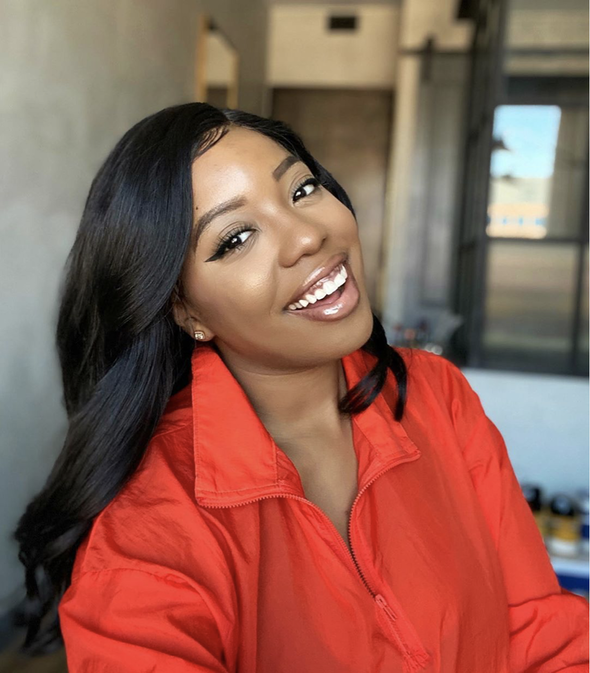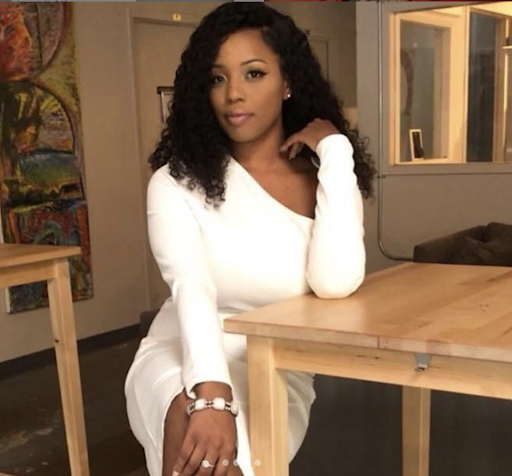Amber Corrine Speaks On Shifting the Culture through Journalism and More
Being a hip-hop journalist in the age of social media holds a great deal of responsibility, now, more than ever. Not many are equipped with the skill of good storytelling, or having a “voice” that’ll keep readers intrigued especially as our attention spans grow shorter and shorter. Amber Corrine is no stranger to being the catalyst that gets people talking about hot topics such as Lizzo being named Time Mag’s Entertainer of the Year, an exclusive interview with Grammy-award winning producers, Ayo N Keyz, to black entrepreneurs in tech on a mission to de-stigmatize cannabis - talk about the range! I had the pleasure of catching up with Amber to discuss who she thinks is shifting the culture, what good journalism means to her and much more.
1. Can you tell us about your start and how you got into journalism?
My love for writing, in general, started back when I was a singer. I wrote songs with my friends and recorded them all the time. When I was completing my undergrad is when I landed a position as a writer for an online Hip Hop magazine. From there with faith, diligence, and consistency all doors continued to open for me. And here I am.
2. When did you realize that writing about music was what you wanted to do?
Like stated prior, music has been a part of my life for as long as I could remember. I was a part of a singing group and we wrote songs and performed them. As I grew older, I started to fall in love with the BTS (behind the scenes) part of music versus being in the spotlight. I loved writing about what was happening in music and talking to artists and creatives alike.
3. What does the term “good journalism” mean to you?
It means being ethical, truthful, true to your writing voice. Being professional even in those times where you want to “fan out.” Those qualities will take you further than anyone just looking for instant fame and nothing more.
4. When it comes to interviews, what goes into your preparation?
Usually, it takes a lot of research depending on who or what I am talking about. It then goes into setting up the time to meet, and then the setting of where we will meet. Once the interview is in process, I usually like to ask my subjects to tell me things that they want and don’t want to discuss. It’s about having conversations and not just drilling them with questions. The best conversations usually come from sparked conversations and not planned ones.
5. As a hip hop journalist, it’s been said that there are two types of categories for writers in your field - there are ones that act as publicists rather than journalists since they get press releases and are known to “blindly co-sign” new acts as “hot”. Then, on the other hand, there are “cultural tourists”, meaning these writers praise the so-called ignorant strains of rap and downplay artists who are actually projecting a message. What are your thoughts on this? What sets you apart from these categories?
I definitely do not put myself into any of those categories. I write about what I am interested in writing about. I have turned down plenty of emails for that reason alone. I never want to co-sign anything just because it is sent to me by a publicist that may be representing big names at the moment. I am more interested in putting people on to what they need to hear or should hear, versus what is just deemed to be “hot.” I have become even more open-minded over the years regarding the newer wave of rappers and I have high respect for the vets.
6. As with every journalist, you hope what you say has power, or in other words, sticks with your audience. How do you make sure your content stays evergreen and vibrant?
I stay consistent. I pay attention to who my audience is and tailor my writing voice to who I am speaking to. That’s how I connect. I am aware of the power of words and how it can calm the frantic or ignite the peaceful. I pay very close attention to the messages I am conveying and how they may affect those reading it. It’s just about thinking forward at all times.
7. What are some misconceptions you face in the field?
One of the major misconceptions is that I have more pull than what people think. Some people think I have the ability to sign artists or get them in connection with certain people and that’s not the case. Yes! My connections are pretty extensive, but things have to happen with timing and with significance. An artist may feel that they are ready to go on a website like HipHopDX, but truthfully, they may not have put 100% into their craft to make it significant to go on such established and credible sites.
8. Is there a journalist out there that you feel is shifting the culture? Who and why?
I think I am one of those journalists shifting the culture. I put culture first before anything else. I think of how what I am saying is contributing to what is happening in music or just the world. Is it hurting or helping? Am I being transparent in who I am as a young, educated, black woman in media? It’s important that I show who I am to encourage others like me that it’s possible to be everything above. You can be a college grad that can alternate your words from knowledgeable to Ebonics, and be black. You can be spiritual and still get “ratchet.” You don’t have to settle or succumb to anyone’s level of expectations. It’s important that we, especially black women, own who we are because we are so valuable to the culture. We set the tone.
9. When it’s all said and done, how are you leaving your mark on the world?
I want people to just know that I was here. I want people to study my writing in college classes years from now. Use what I say as guidelines or examples. I want my story and journey to inspire others to tap into their passions no matter how many it may be. You can do it all. Because I did.
Looking to keep up with Amber? Stay connected with her work via Linktr.ee. Be sure to check out her contributing pieces to publications such as HipHopDX, The Grio and head over to her YouTube channel @ambercorrine_ for more.



